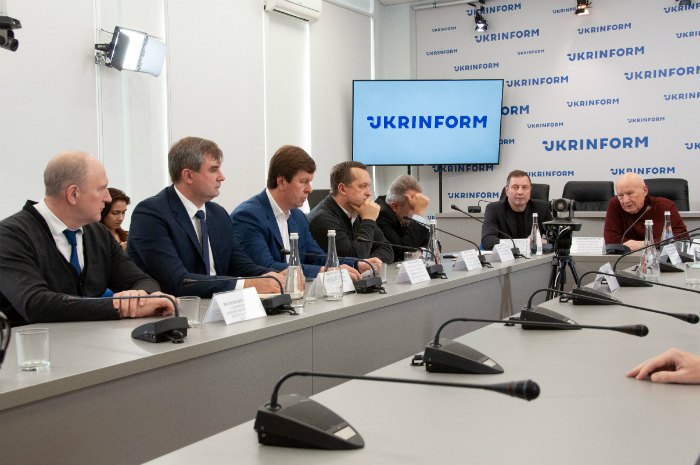
The chairman of the supervisory board of the Ukrainian Security Studies Institute, Volodymyr Horbulin, said that Ukraine's inclusion in the list of "major US allies" can be an important step towards comprehensively improving the situation with military technological development: "We really have a number of achievements that may be interesting to the United States. Israel, Japan and South Korea are already strategic partners of the United States. Our country could become such a strategic partner in Eastern Europe. If Washington supported missile initiatives and other developments in our defence industry, it could translate into practical support for Ukraine in meeting NATO standards, US defence companies' large-scale operation in our country, and the exchange of critical defence technologies."
Horbulin also stressed that one of the key tasks in the context of Ukraine's relations with the West is to develop bilateral relations with Washington and enhance constructive engagement with NATO. "We must also rely on the creation of high-tech joint ventures and the purchase of necessary licenses. We need to convince the American colleagues that Ukraine is an asset, not a liability, and that it can and, most importantly, wants to become a securely protected, safe and properly armed ally of the West," the expert said.
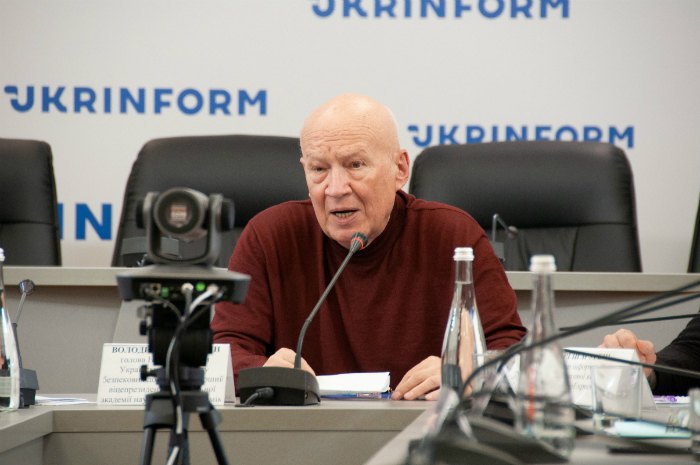
In addition, Horbulin is convinced that today we should be talking not just about the prospects but about fundamental changes in the military-strategic landscape that make the previous understanding of strategic security obsolete. These changes include the development and supply of the army with high-precision non-nuclear weapons with strategic properties (short-range missiles with conventional warheads, air defence systems, anti-satellite systems, laser weapons and cyber weapons).
According to a board member of League of Defence Enterprises of Ukraine NGO, president of Everest Group of Companies, Yuriy Chubatyuk, regulatory legal initiatives on productive public-private partnerships are necessary for US integrator companies to work with countries such as Ukraine. First, we will have to create the right conditions for international cooperation in the development and modernization of the defence sector.
"Ukraine has great potential to develop military business programmes and projects in partnership with US integrators. They are ready to work with countries like ours. But this requires relevant conditions. The state should guarantee the safety and security of business and citizens, form a systemic dialogue with experts and ensure a full-fledged public-private partnership to integrate ready-made commercial solutions at the legislative level," Chubatyuk said.
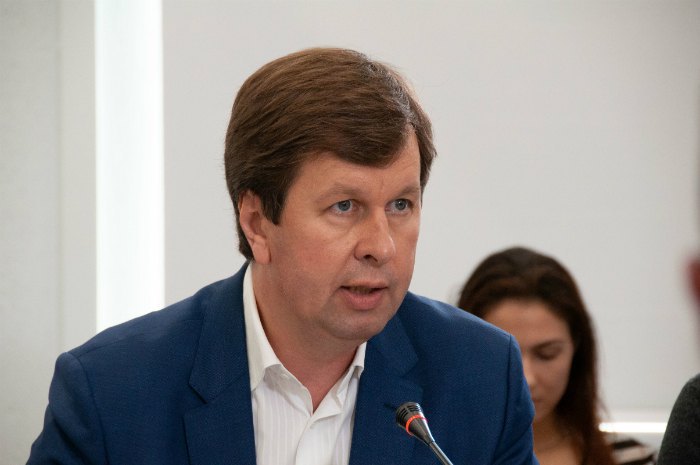
He noted that business is represented by common citizens, and it is important for it to see that the state has an interest in it. In addition, the already existing domestic commercial software and technological developments can help Ukraine make a huge quantum leap in the development of the defence industry. "Today, we can protect the life of a soldier not by holding him in the barracks but by using modern weapons. But this requires the demand and desire of the state to involve specialists, business and professionals in the work of the Defence Ministry. Relevant programmes are required. We need an open dialogue on the use of solutions designed by Ukrainian manufacturers, which are plenty," Chubatyuk said.
He added that more than two dozen de facto interconnected units are currently being employed at the US Department of Defense, focused on finding, developing, discussing, testing and integrating commercial innovative solutions to improve the technological capabilities of the military and each soldier. In addition, individual organizational units provide systematic support for communications with representatives of the research and industrial community to make sure they do not moss any new decisions that may be decisive for the army.
An USSI board member, director of the Centre for Army, Conversion and Disarmament Studies, Valentyn Badrak, noted that Ukraine had been repairing and upgrading weapons and equipment for the third- generation war for five years while it risks a war of the fourth generation and above.
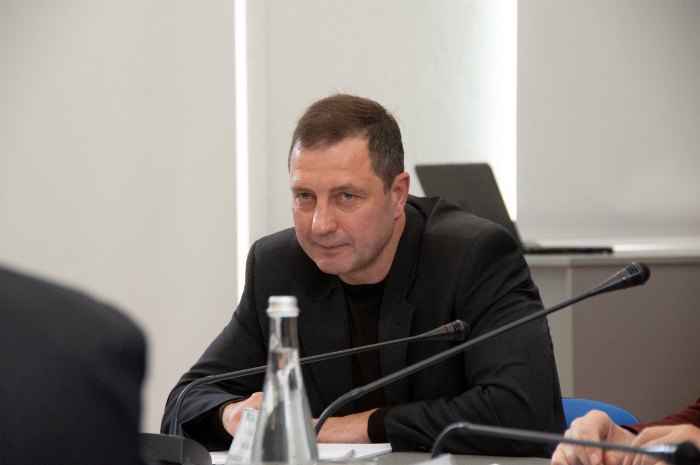
"First, it is of utmost importance for us to move to the rapid formation of modern combat capabilities, the so-called 'shield' for deterring aggression. This includes missiles with a range of 300-500 km (with a prospect of 1,500 km), the latest means of detection, automation, electronic warfare and mass production of strike components (from barrage ammunition to reusable combat drones). Second, the Ukrainian defence forces need to carefully study and integrate new forms and methods of warfare, taking into account the national features and five years of experience of the Russian-Ukrainian war, which undoubtedly requires the Defence Ministry to create a structure for research into modern warfare and the development of the Ukrainian Armed Forces. And, third, in the context of tectonic shifts in NATO, the emphasis should be placed on organizing bilateral cooperation with the United States. This does not change the attitude towards the transition to NATO standards, but the 'asking' rhetoric concerning membership in the organization should be transformed into effective "working" interaction. I am talking about the interpenetration of technologies, dosed purchases of Western weapons and, most importantly, the organization of systemic and balanced work on rapprochement with the United States, which has not been done so far. USSI experts believe that Ukraine could become a 'European Israel' for the USA," Badrak suggested.
According to a board member of the Ukrainian Security Studies Institute, the chairman of the Volunteer Council at the Defence Ministry, Oleksiy Gridin, Ukraine must first clearly identify its priorities in foreign policy and carefully build its relations with its main strategic partner. According to him, so far all talks on cooperation and partnership with the USA have not moved over conversations because in reality Ukrainian delegations go to Brussels twice or thrice a month while no delegations have been sent to the USA since 2016.
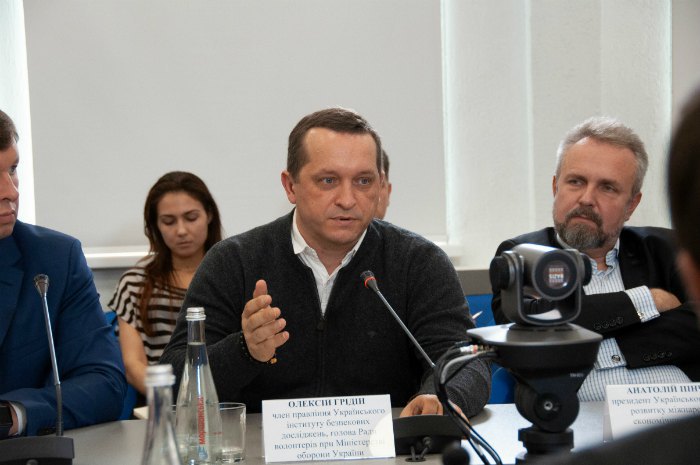
"It is also important that effective cooperation with the United States today is hindered by personnel issues and the absence of clear programmes in Ukraine. For five years, US authorities have signalled the need to replace those responsible for military-technical assistance in the military leadership of Ukraine. However no decisions have been made yet. The USA does not work with the people it does not want to see. This issue must be resolved if we are to develop an appropriate strategic partnership. In addition, as of today, there are no targeted projects and programmes in Ukraine, and all assistance provided annually to Ukraine is ineffective, the way the US side sees it. The problem is that there is no strategy. The USA expects us to send a consolidated delegation with a specific programme," Gridin said.
Sergiy Zgurets, board member of the Ukrainian Security Studies Institute, director of the Defense Express information consulting company, also stressed the importance of Ukraine forming a partnership strategy for expanding the capabilities of the defence sector. "Alone we will not make any technological breakthrough despite all our ambitions, and we need to look for strong partners. There is no point in using the potential of cooperation with the USA in the context of individual technologies, it is necessary to formalise military-technical cooperation with both state-owned and private companies," the expert said.

At the same time, Zgurets noted that there is a need to talk about the risks as well because Ukrainian exporters often face severe US restrictions when they are looking for partners in the world, which only confirms the need for a common language. "Besides, it is also necessary to address the situations in which the state has found itself post factum. I mean the fate of Motor-Sich and cooperation with such a partner as China," he said.
Anatoliy Pinchuk, president of the Ukrainian Centre for International Relations Development, director of Ukrainian Strategy NGO, added that, in principle, Ukraine's high-level officials constantly forget about the foundations of geopolitics. "There are certain natural factors and the economic, political, social and historical aspects that affect them. They form a geopolitical concept concerning the confrontation between maritime and continental states. 'Intermediate' states, such as Poland, the Baltic states and Ukraine, are interested in cooperation with the 'maritime' countries. It is absolutely legitimate for us to strive for NATO membership but it is only natural that Ukraine should strive for partnership with an ally such as the United States," the expert said.
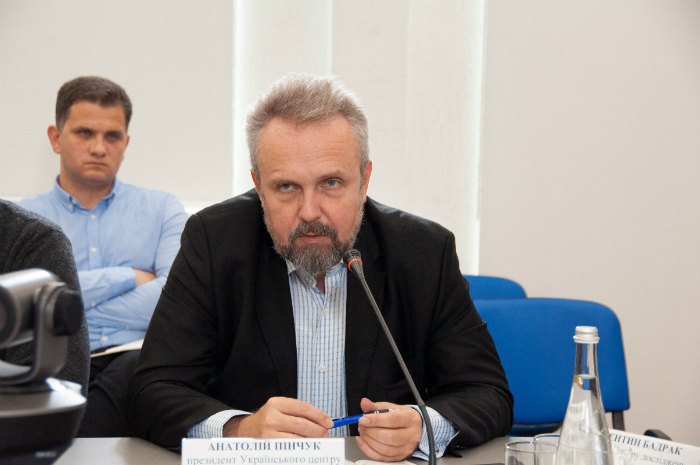
In his view, the status of a US ally will indeed significantly enhance security and defence cooperation, enabling it at the level of ministries, special services and so on. However, unfortunately, despite the number of informal requests for this status, there is currently no real work or lobbying being done to achieve this on the part of the Ukrainian authorities. What is more, in recent years, there have always been problems in defence cooperation between Ukraine and the USA due to the fact that Ukraine has not used and is not using all its capabilities, even in matters of military assistance. "Only last year, Ukraine's began to interact with the Pentagon through its direct support programmes. Now that we have a constant potential threat of a large-scale invasion by the Russian Federation and the instability of interstate institutions in Europe, Ukraine should follow the example of Poland, which has demonstrated a successful political partnership with the USA: it buys state-of-the-art weapons, demonstrating its willingness to spend its own resources and has practically become the United States' representative in the EU and the largest recipient of US aid in Eastern Europe," Pinchuk said.
The first vice-president of Gorshenin Institute, Viktor Sokolov, noted, for his part, that it is very difficult for Ukraine to compete with Russia in terms of conventional weapons. Therefore, in order to successfully counter Russian aggression, our weapons must become more technological and more hybrid.
"We will not be able to quickly build aircraft carriers or submarines to match the firepower of the Russian Black Sea Fleet but, for example, the use of anti-ship missiles, 'mosquito' fleet or unmanned underwater vehicles can dramatically change the balance of power," the expert said.

Sokolov drew the drone attack on the Saudi Aramco oil refineries in Saudi Arabia as an example of hybrid technology. "Previously, only the armed forces of the major powers had attack instruments capable of destroying such strategically important facilities as an oil refinery or a nuclear power plant. Today it is enough to have drones. It should be noted that Saudi Arabia has serious air defence systems and aviation, ranking fourth in the world in terms of military spending at $60bn. But all of this failed to protect its critical infrastructure. It is interesting that Russia has almost the same annual military spending of $62bn," he noted.
Sokolov added: "Another hybrid technology is cyber weapons. Today, the cybersecurity situation is reminiscent of the situation after World War II when the victorious countries accumulated serious resources, including nuclear weapons technology. By the way, due to the rapid development of technology, even the nuclear threat may prove to be secondary to the threat of cyber weapons. To date, a number of countries already have the technologies and tools that make it possible to wage cyberwarfare. The club of these countries may turn out to be completely surprising and may not even match the scale of influence these countries have in the world today because it is determined not so much by 'iron' as by intellectual resources and technologies."
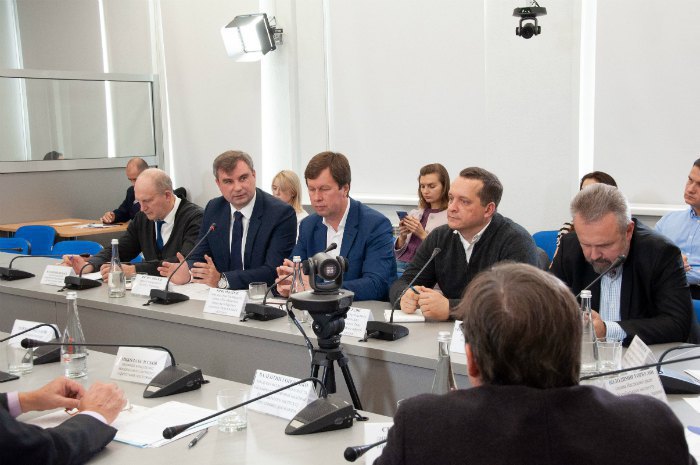
"Ukraine has considerable potential in cybersecurity, and also has a pool of highly qualified IT professionals who successfully work for the world's largest companies. And it is critical for Ukraine to get into this club of cyber-weapon states. This is especially true now that the world is facing the need to sign a cyber weapons non-proliferation treaty and design measures to prevent associated threats," the first vice-president of Gorshenin Institute said.
"Therefore military-technical cooperation between Ukraine and the USA should focus not only on conventional weapons but also on technological and hybrid weapons, which will significantly change the balance of power. Whereas the wars of the past were a competition for who has got thicker armour or longer-range artillery, those who have more technological and hybrid weapons will win the wars of the future," Sokolov concluded.







